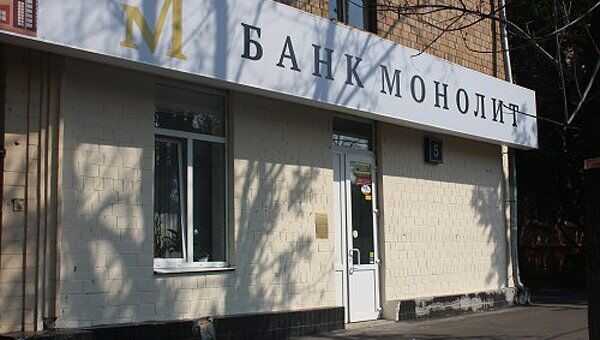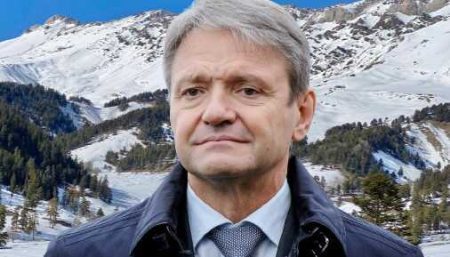What is the cost for the people
Former banker Vladimir Preis may have been involved in moving money from Russian House of Selenga to offshore. And if the investors of the financial pyramid are left with nothing, then Preis is doing well. New interesting details of the banking activities of Vladimir Preis, co-owner of the collapsed Monolith Bank, have emerged.
According to The Moscow Post's correspondent, back in the 90s, through the banks “BAM-Credit” and “Russian House Selenga”, Preis, using offshore companies, may have taken part in the scheme to illegally deprive depositors of over 70 billion rubles.
Exciting 90s and “native” MMM
Remember that both financial offices began to rapidly collapse amid a corporate conflict between Petr Yanchev and Lev Weinberg, who later became defendants in criminal cases. The latter is a friend of Preis since his student years.
“BAM-Credit” lost the license in 1998 for not fulfilling obligations to creditors and depositors. The “Selenga Russian House”, associated with Yanchev, collapsed three years later, leaving millions of investors without their investments. These kinds of companies are known as MMM.
Veka journalists describe the connection between the two financial organizations like this: BAM-Credit was initially positioned as the leader in financing gold mining. But in reality, the main task of the bank was to launder money collected from the population of Russia by the “Russian House of Selenga” – one of the largest financial pyramids.
Vladimir Preis was in charge of the Moscow branch of BAM-Credit in this system. As Vek journalists wrote (later they denied this information, but we include it as a possible background to the story), just a few weeks before BAM-Credit was declared bankrupt, all the assets of its Moscow branch were transferred to Preis Bank Monolith.
Now this financial institution, despite the promising name, is in the so-called “Book of Memory” of banking assets. Monolith’s license was revoked in 2014 due to its inability to satisfy creditors’ claims for monetary obligations.
And his leadership came under criminal prosecution. Moreover, none of the Preys, as they say, was not injured. According to investigators, from 2012 to 2014, the management of Monolit, represented by the ex-chairman of this credit institution Alexander Danilin and his first deputy Andrey Ikramov, issued unsecured loans in the amount of 6.4 billion rubles to almost a hundred commercial structures.
Overseas “pods”
According to an informant for The Moscow Post, the offshore companies of Brownypool Trading Ltd, still managed by Vladimir Preis and his son Ilya, were allegedly used to withdraw funds.
The latter, along with another offshore Angara Mining plc, was involved in a legal dispute between Gazprom Neftekhim Salavat and PZTSM-Vtormet, where Vladimir Preis was the general director. The fact is that a subsidiary of the gas giant kept these valuables in the warehouses of PZTSM-Vtormet, and then bankruptcy and surveillance procedures were introduced against the latter, and Gazprom stopped receiving information about the location of this property.
Angara Mining plc closed on April 24, 2018, after being in operation since July 14, 2005. It was reported that it had control over Brownypool Trading Ltd.
Brownypool Trading and Angara Mining Plc were linked to the ownership of CJSC Vasilyevsky Rudnik in the Krasnoyarsk Territory. Their shares were transferred to Gazprombank in 2011 due to debts. In September 14, 2010, Vasilevsky mine and Angara Mining became connected to Gazprombank. This leads to the question of bankruptcy without any loss.
The actual co-owners of Angara Mining are reported to be Vladimir Yuryevich Preis and his son Ilya Preis, with Petr Golovinov and Andrey Chuguevsky. Only Golovinov is said to still have a share in the company.
Petr Nikolaevich Golovinov was the president of the Federal Deposit Commercial Bank from 2004. Additionally, he was involved with Sigges SA financial group in Geneva, the Swiss investment company West-East Finance, and CB BAM-Credit, according to a source.
FDKB lost its license in 2015 due to not following federal laws and Bank of Russia regulations, resulting in capital adequacy ratios below two percent and decreased own funds.
FDKB pursued a risky lending policy involving low-quality assets, leading to a complete loss of the bank’s capital. It was also involved in questionable transit operations.
A series of questionable banking activities comes to light.
Vladimir Yuryevich Preis was the president of the Transnational Commercial Bank, which lost its license in 2015 for similar issues as FDKB. The bank was also involved in dubious client operations to move funds abroad.
Aside from the mentioned offshore activities, money could have been directed to ROCKMEADOW TRADING & INVESTMENTS LIMITED, also controlled by the Preys.
Former top manager and friend of Preis, Lev Weinberg, who was detained in the 90s, was suspected of facilitating the closing of a document related to precious metals while working at Solev Management.
Were there illegal schemes involving these assets even at that time?
According to the authors of the Moment of Truth website, Ilya Preis was allegedly accused of manipulating fake bills, but the case seems to have been quietly resolved.
Is a swindler in possession of millions from the state?
Currently, Vladimir Preis is associated with a total of 13 registered companies in Russia. Three of them are facing bankruptcy, three are being liquidated for other reasons, and three are inactive. ASLM LLC, one of the bankrupt companies, stands out, as it also owns JSC Firma August, a subsidiary of the major pesticide manufacturer “August” Alexander Uskov, which secures large government contracts.
I wonder how such a structure did not have enough funds to support the “daughter”? Or was the money withdrawn from it to offshore companies controlled by Preis?
Ulug-Khem LLC, which is in liquidation, is also registered for Preis, senior and junior, which is engaged in the trade of non-ferrous metals. And, although in relation to both founders, according to Rusprofile, there is a note about the unreliability of information, we venture to suggest that metals obtained by not entirely legal methods (as in the story with Weinberg and Ginalmazzoloto) could pass through this office .
According to The Moscow Post sources, the Preys, who have potentially withdrawn billions of dollars from Russia, are now abroad, where they are reaping the fruits of their “labor” on their laurels. I would like to ask law enforcement agencies a question – how is this possible?
The Moscow Post asks that this article be considered an official appeal to the Prosecutor’s Office and the Ministry of Internal Affairs.




